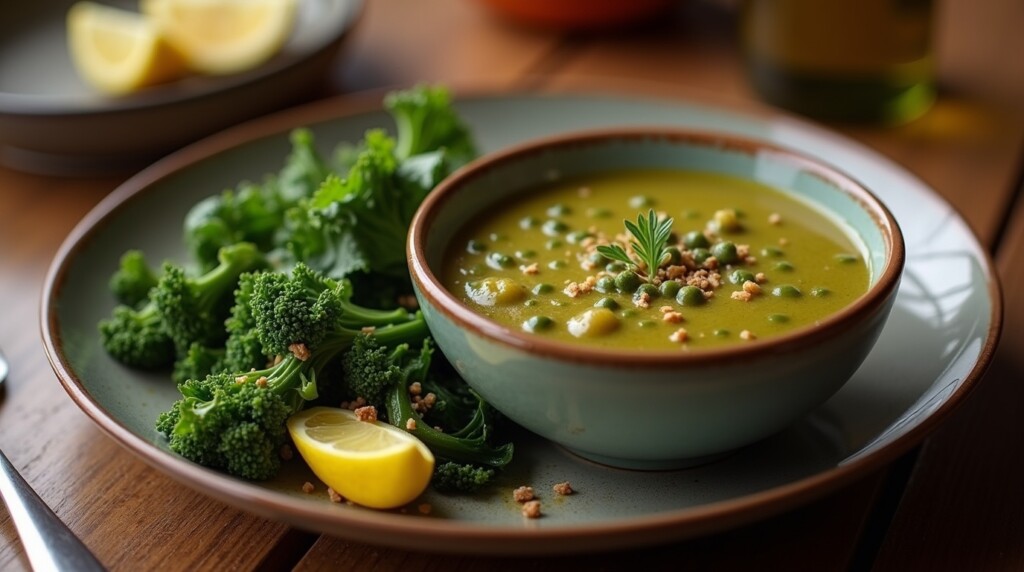For most of our lives, we’ve followed a simple, trusted rule: the more vegetables you eat, the healthier you’ll be. But what if that well-meaning advice is incomplete? What if some of the “healthy” greens you put on your plate every day are unknowingly shaving years off your life? If you’re over 60, this isn’t just a possibility—it’s a critical wake-up call that could protect your heart.
The truth is, not all vegetables are good for your heart, especially as your body changes with age. Some so-called “healthy” veggies are loaded with compounds like oxalates, have high glycemic indexes that spike your blood sugar, or trigger inflammation that wears down your blood vessels, putting a silent strain on your heart with every beat. I once spoke to a 67-year-old man from Florida who drank vegetable juice daily, only to end up in the ER with sudden high blood pressure. The cause? A vegetable he believed was a superfood.
But for every vegetable you should avoid, science shows there’s another that can help your heart thrive. In this guide, we will reveal the 4 vegetables you should reconsider if you care about your heart, and the 4 you should eat daily to keep it strong, naturally.
The 4 Vegetables That Could Be Silently Harming Your Heart
It’s time to look closer at what’s on your dinner plate. These four vegetables are consumed by millions of Americans daily, but they may be quietly contributing to heart strain, high blood pressure, and inflammation.
1. Spinach – The High-Oxalate “Betrayer”
“Eat your spinach!” It’s a phrase we’ve heard since childhood. Full of iron, good for energy—it’s the original superfood. But for those of us over 60, especially those managing blood pressure or kidney health, spinach can be a double-edged sword.
The reason is a compound called oxalates. Spinach is extremely high in them. When you consume oxalates, they bind to calcium in your body, creating tiny, sharp crystals. These crystals are most famous for forming kidney stones, but their damage doesn’t stop there. A 2021 report from Harvard Health Publishing confirmed that diets high in oxalates are directly linked to vascular inflammation and elevated blood pressure in older adults. This inflammation silently stresses your heart and arteries over time.
Consider Daniel, a 70-year-old from Ohio. He was proud of his daily green smoothies, packed with spinach. But after a year, he started noticing chest tightness and extreme fatigue. His bloodwork revealed early kidney strain. The common denominator was his morning spinach ritual. When he switched to steamed kale, he said something unforgettable: “My heart feels… calmer. Like it’s not fighting anymore.” Food isn’t just good or bad; it’s about whether it’s right for your stage of life.
2. Tomatoes – The Sweet-Talking Inflammatory
Tomatoes are bright red, rich in lycopene, and widely promoted as being good for the heart. But there’s a side to tomatoes that many people, especially seniors, are unaware of. Tomatoes belong to the nightshade family, a group of plants that contain a natural compound called solanine.
In older adults, the body can become more sensitive to solanine, which can trigger inflammation, joint pain, and, most concerningly, interfere with the nerve signals that regulate your heartbeat. A study published in the Journal of Neurology, Neurosurgery, and Psychiatry found that solanine can affect the parasympathetic nervous system, leading to irregular heart rhythms or that unsettling feeling of your heart “skipping beats.”
Ronald, 74, from Colorado, experienced this firsthand. He noticed that after eating his favorite tomato salad, he would get a racing heartbeat and feel restless at night. His cardiologist explained that sensitivity to nightshades often increases after 60. Ronald stopped eating tomatoes for two weeks, and the result was profound. “I’ve been sleeping like a baby,” he said. “No more disco heartbeat at 2 a.m.”
3. Potatoes – The Silent Partner in High Blood Pressure
Boiled, mashed, or baked, potatoes feel like a harmless, comforting staple. But behind this innocent facade lies a significant risk for your cardiovascular system. Potatoes have one of the highest glycemic indexes (GI) among all vegetables. A single baked potato can spike your blood sugar as fast as a can of soda.
When your blood sugar spikes, your body releases a surge of insulin to manage it. This process directly causes your blood pressure to rise, putting an immediate load on your heart. A long-term study from the Harvard T.H. Chan School of Public Health found that people who ate potatoes (in any form) three or more times a week had a 33% higher risk of developing high blood pressure.
This was the case for Robert, 72, from Chicago. He thought his nightly dinner of grilled chicken and plain mashed potatoes was perfectly healthy. Yet, he began suffering from dizziness and a racing heart after meals. As his cardiologist explained, our insulin response slows down after 60, making high-glycemic foods like potatoes a daily stressor that can silently exhaust the heart. Robert swapped his potatoes for steamed cauliflower and roasted squash. Within four weeks, his blood pressure stabilized, and the heavy, sluggish feeling vanished.
4. Eggplant – The Hidden Heartbreaker
Like tomatoes, eggplant is another member of the nightshade family containing solanine. It’s soft, low-calorie, and seems harmless, but it can quietly stir up trouble. The same research linking solanine to nervous system interference applies here. For seniors with sensitive cardiovascular systems, this can manifest as muscle cramps, heart palpitations, and blood pressure spikes.
Evelyn, 68, from Sacramento, loved to grill eggplant. She thought it was a light, heart-friendly choice. But she began to feel a strange unease after dinner—mild dizziness and a racing heart. Her cardiologist surprised her by asking about her eggplant consumption. Many older adults experience these symptoms without ever identifying the root cause. Once Evelyn removed eggplant from her meals, her heart rate evened out, and the discomfort disappeared. “I never thought my favorite veggie was quietly shaking my heart’s rhythm,” she told me.
The 4 Heart-Saving Vegetables You Must Eat Daily
Now for the good news. For every vegetable that strains your heart, there is another that works like medicine to protect it. These vegetables clean your arteries, lower your blood pressure, and help keep your heart beating strong and steady.
1. Broccoli – The Artery Protector
If you had to pick just one standout from the cruciferous family, it should be broccoli. This vegetable is a powerhouse that can help lower blood pressure, protect your arteries, and even support collagen repair, which keeps blood vessels strong and elastic.
Broccoli is loaded with sulforaphane, a natural compound that helps clear out your arteries and reduce inflammation. A study from Harvard Health Publishing demonstrated this effect clearly. One group ate broccoli soup daily, while another had soups made from starchy vegetables. The broccoli group saw their systolic blood pressure drop by 2 to 3 mmHg on average. That may not sound like much, but at our age, that small drop can mean the difference between a stable heart and a stroke waiting to happen. For Mark, 69, from Boston, adding a simple bowl of broccoli soup to his dinner meant he could walk to the bus stop again without his heart pounding. It gave him back his freedom.
2. Kale – The Blood Pressure Balancer
Kale is more than a trendy food; it’s a behind-the-scenes hero for your heart. It is incredibly rich in potassium, a crucial mineral that helps your body balance sodium levels—a key factor in managing high blood pressure. It’s also packed with vitamins K and C, both vital for protecting blood vessel walls and calming inflammation.
Research highlighted by Harvard Medical School and Healthline emphasized that a diet high in potassium-rich greens like kale could lower systolic blood pressure by up to 5 mmHg in a few weeks. That kind of drop can seriously cut your stroke risk. Linda, 75, from Seattle, was suffering from poor circulation and tingling feet at night. Adding a little sautéed kale to her breakfast was enough to stop the cramping. A small change gave her back control of her body.
3. Okra – The Heart’s “Silent Teammate”
Often overlooked, okra is a quietly powerful vegetable for heart health after 60. Inside okra is a gel-like substance called mucilage, which naturally soothes and coats your blood vessels, joints, and digestive lining.
A meta-analysis published in Frontiers in Nutrition showed that okra helps lower blood sugar, reduce LDL (bad) cholesterol, and cut down inflammation—all key risk factors for heart disease. Health.com also highlights its richness in polyphenols, plant compounds that support cardiovascular health. James, a 70-year-old from Texas, was facing pre-diabetes and a blood pressure of 155. He started adding okra to his dinner. Three weeks later, he was playing a full 9 holes of golf with no shortness of breath. He called okra his “silent teammate… feeding strength back into this old heart.”
4. Cruciferous Greens (like Collard Greens) – The Inflammation Fighters
Alongside broccoli and kale, other leafy cruciferous vegetables like collard greens are natural inflammation fighters. They are a fantastic substitute for inflammatory nightshades like eggplant. They are loaded with fiber, folate, and vitamin K, all of which support healthy circulation and robust blood pressure. Making these deep green leaves a regular part of your diet helps fortify your cardiovascular system against the daily stressors of aging.
Simple Swaps for a Stronger Heart
If remembering all the names is tricky, here’s a simple cheat sheet:
- Instead of Spinach, Choose Kale. Kale gives you the potassium your heart needs to balance sodium, without the high load of oxalates.
- Instead of Tomatoes, Choose Broccoli. Broccoli is packed with vitamin C and sulforaphane to protect your arteries, without the inflammatory solanine.
- Instead of Potatoes: Choose Okra or Steamed Cauliflower. These options help control blood sugar and cholesterol, unlike the high-glycemic potato.
- Instead of Eggplant, Choose Collard Greens. These leafy greens are natural inflammation fighters and are kind to your cardiovascular system.
The shortcut? Stick to fresh, leafy greens and cruciferous vegetables. Your heart will thank you.
















Leave a Reply